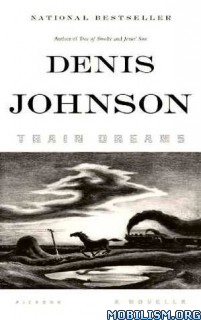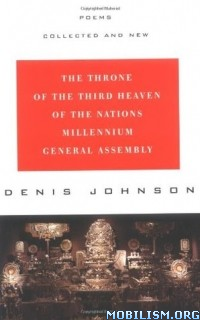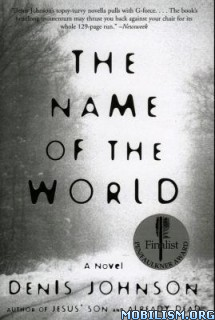2 Novels and 1 Poetry Book by Denis Johnson
Requirements: EPUB Reader, 512 & 310 kB
Overview: Poet, playwright and author Denis Johnson was born in Munich, West Germany in 1949 and was raised in Tokyo, Manila and Washington. He holds a masters’ degree from the University of Iowa and has received many awards for his work, including a Lannan Fellowship in Fiction (1993), a Whiting Writer’s Award (1986), the Aga Khan Prize for Fiction from the Paris Review for Train Dreams, and the National Book Award for Fiction (2007).
Genre: American Literature / Historical Fiction & Poetry


Train Dreams
A New York Times Notable Book, an Esquire Best Book of 2011, a New Yorker Favorite Book of 2011, a Los Angeles Times Favorite Book of 2011, Denis Johnson’s Train Dreams is an epic in miniature, one of his most evocative and poignant fictions. It is the story of Robert Grainier, a day laborer in the American West at the start of the twentieth century—an ordinary man in extraordinary times. Buffeted by the loss of his family, Grainer struggles to make sense of this strange new world. As his story unfolds, we witness both his shocking personal defeats and the radical changes that transform America in his lifetime. Suffused with the history and landscapes of the American West, this novella by the National Book Award–winning author of Tree of Smoke captures the disappearance of a distinctly American way of life.
The Throne of the Third Heaven of the Nations Millennium General Assembly: Poems Collected and New
Johnson attracted attention in the 1980s for a poetry that depicted a disillusioned America driven to strangeness by media addiction and consumerism, a nation of "Face-owners… impossible to impress, dead inside,/ Looking for somebody they can trust again,/Someone to make them feel betrayed one more time." This awkwardly titled omnibus collects the author’s four published poetry collections, adding 16 poems written since The Veil. Sleepwalking the same moonlit territory of self-negation and despair opened by Mark Strand three decades ago, Johnson tries to spike the bleakness with complex images ("All night the moon rings like a telephone/in an empty booth above our separateness") that often devolve into confused abstractions. Where the early work can seem too somber and self-pitying, and the later poems too smug in their formulas, "The Incognito Lounge" and several other pieces still impress with their spectral invention but not sufficiently so to support a retrospective of this size.
The Name of the World
This novel is a mesmerizing portrait of a professor at a Midwestern university who has been patient in his grief after an accident takes the lives of his wife and child and has permitted that grief to enlarge him.
Michael Reed is living a posthumous life. In spite of outward appearances — he holds a respectable university teaching position; he is an articulate and attractive addition to local social life — he’s a dead man walking. Nothing can touch Reed, nothing can move him, although he observes with a mordant clarity the lives whirling vigorously around him. Of his recent bereavement, nearly four years earlier, he observes, "I’m speaking as I’d speak of a change in the earth’s climate, or the recent war."
Facing the unwelcome end of his temporary stint at the university, Reed finds himself forced "to act like somebody who cares what happens to him. " Tentatively he begins to let himself make contact with a host of characters in this small academic town, souls who seem to have in common a tentativeness of their own. In this atmosphere characterized, as he says, "by cynicism, occasional brilliance, and small, polite terror," he manages, against all his expectations, to find people to light his way through his private labyrinth.
Download Instructions:
1 & 2 – http://destyy.com/wLcQmD
3 – http://destyy.com/wLcQmN
Mirror:
1 & 2 – http://destyy.com/wLcQQr
3 – http://destyy.com/wLcQQd

